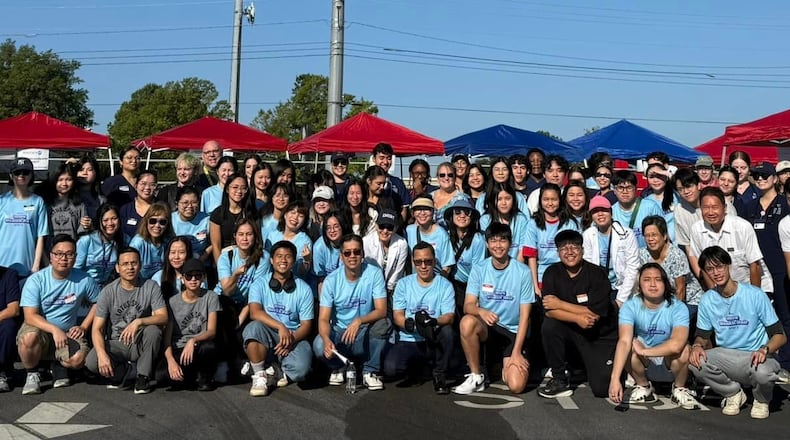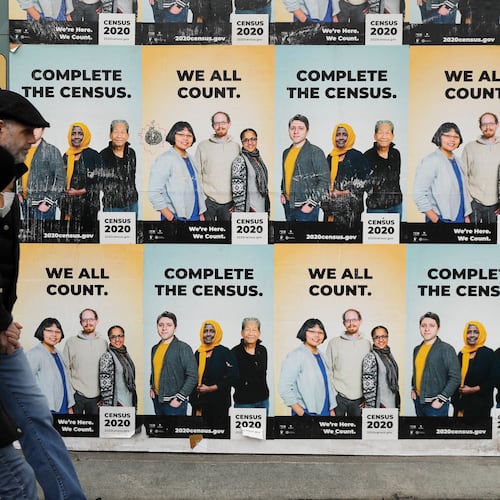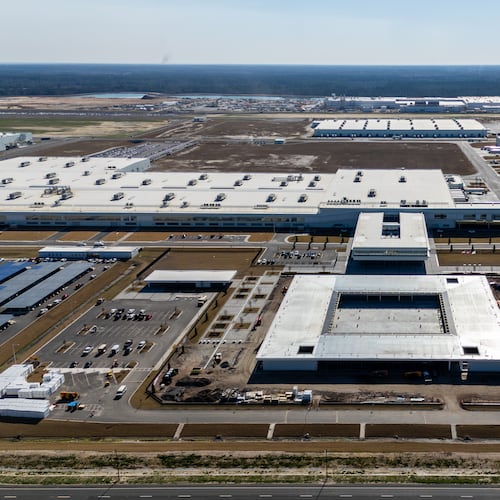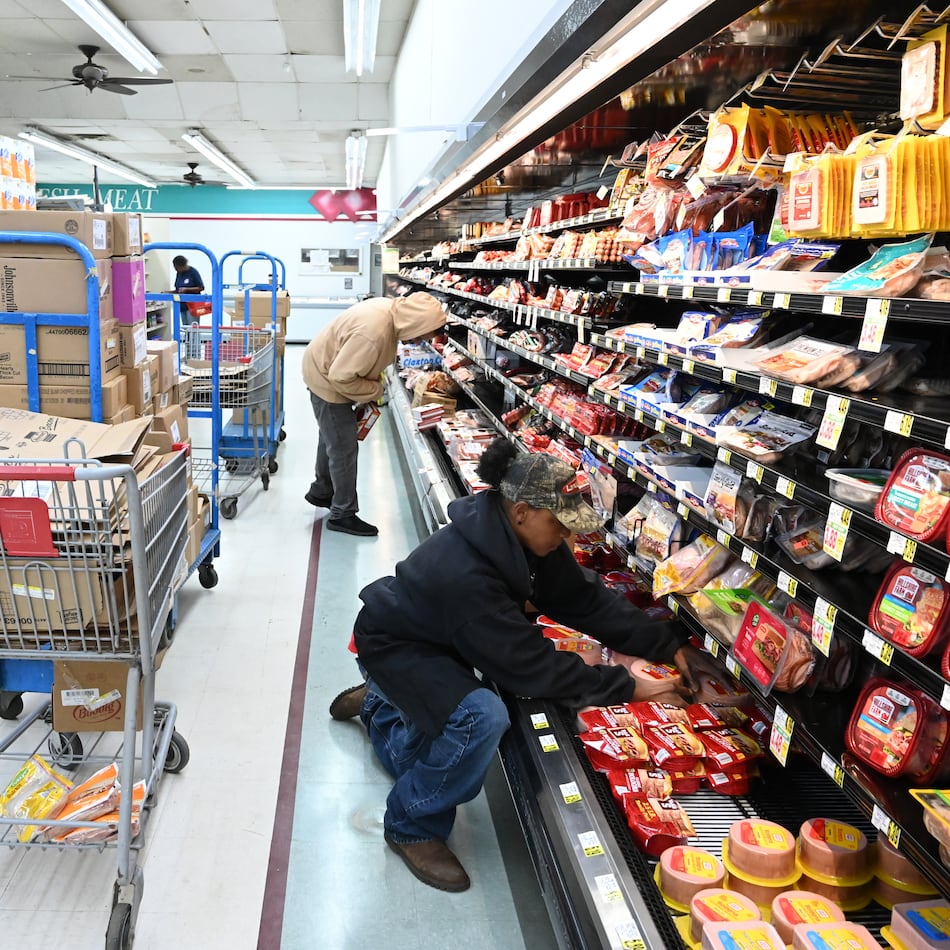This story was originally published by 285 South.
In the spring of his final year as president, when he signed the Refugee Act of 1980 into law, Jimmy Carter couldn’t have known that it would be one of the last major immigration reforms that the country would enact.
Today, as immigration continues to be a contentious issue in national politics—and as the global refugee crisis worsens—the act stands a testament to Carter’s legacy in foreign policy: It established the durable refugee system that the U.S. still relies on, paving the way for the resettlement of more than 3 million people since it became law.
The act came about in the aftermath of the Vietnam War, as hundreds of thousands fled Vietnam, Cambodia, and Laos amid political chaos. Previously, the American refugee system was patchwork, allowing for only 17,400 “conditional entries” per year for people from communist countries or the Middle East. Outside of this, presidents could grant refugees temporary parole, but weren’t able to offer a pathway to permanent residency.
The 1980 Refugee Act created the Office of Refugee Resettlement, raised the annual ceiling for refugees to 50,000, and established a process for reviewing and adjusting that ceiling to meet emergencies. It also brought the U.S. definition of “refugee” in line with standards established by the United Nations, which considered a refugee a person with a “well-founded fear of persecution.” In the year following the act’s passage, the U.S. welcomed more than 200,000 refugees. As John Slocum, the executive director of Refugee Council USA, said in a statement following Carter’s death, “President Carter’s vision and commitment to refugees reminds us that our national leaders can and should demonstrate bold leadership in upholding our moral and legal obligations to people who have been forced from their homes.”
The creation of the Office of Refugee Resettlement had major impacts in the Atlanta metro: The area around Clarkston alone has been home to more than 60,000 refugees since the act’s passage. It also contributed to the creation of a robust network of local agencies that help newcomers find their footing here, including the International Rescue Committee, New American Pathways, and Catholic Charities Atlanta.
Boat People SOS is another group helping in a similar capacity. The nonprofit was founded the same year as the passage of the Refugee Act, initially to aid the “boat people” fleeing Vietnam by sea. Since then, Boat People SOS—which opened an Atlanta chapter in the early 2000s—has expanded its mission to aid immigrants, combat sex trafficking and domestic violence, provide legal services to Asian communities in the U.S., and more.
285 South spoke with Trinh Pham, the executive director of the Georgia chapter of Boat People SOS, about the 1980 Refugee Act and its effects on the work of her organization—and on Georgia’s refugee communities generally.
This interview has been edited for clarity.
Q: Can you tell me about the work Boat People SOS does?
Trinh Pham: The name is very attached to the organization’s work. Right after the Vietnam War, in 1975, a huge wave of Vietnamese refugees escaped from the country. Many Vietnamese related to the former government were put in jail and prosecuted—that’s why they tried their best to escape from the country by boat. The majority of them were settled in refugee camps in Thailand, Indonesia, and Singapore.
Many Vietnamese who were U.S. citizens, or came from European or Westernized countries, came together to form a group—they did a lot of advocacy to rescue people. At the time, they advocated for policies to resettle those refugees to the U.S. or Westernized countries.
Originally, the organization was formed in 1980 to respond to the needs of Vietnamese refugees escaping from the country. They did a lot of advocacy [and] raised financial support, and they sent a lot of volunteers, lawyers, and doctors to the refugee camp to help those people.
We still do a lot of advocacy. Right now, because not many Vietnamese get to the country by boat anymore, we do a lot of advocacy for human rights, labor trafficking, and sex trafficking in Asia.
Credit: Sophia Qureshi
Credit: Sophia Qureshi
Q: What was the impact of the 1980 Refugee Act on the Georgia refugee community?
Pham: There was a huge impact. Due to the act, there are so many different Vietnamese refugees who were resettled in this country that originally dreamed of escaping from their country and getting out of the communist regime. Based on the act, they could safely achieve their dream to be in the U.S.—and to be in Georgia specifically. Georgia was a promising land for many refugees at the time.
Q: Can you expand on that?
Pham: A long time ago, the Vietnamese tended to gather where there were the most Vietnamese, which is in the Los Angeles area. They even have the Little Saigon in California that’s still the biggest Vietnamese community there. But due to the economy and the cost of living, the Vietnamese refugees that came to the country after the 1990s—the majority of them—couldn’t find California as a good land to resettle anymore.
They came to Georgia. That’s why we say Georgia is still the best place for refugees, for Vietnamese. Many of them are very successful because of the cost of living, housing, job market, and school system. So many families are very successful now, with their kids growing up and becoming professionals.
Q: Can you explain what the work that Boat People SOS–Atlanta does in Georgia today?
Pham: The majority of Vietnamese people in the U.S. are somehow related to boat people refugees. We don’t have Vietnamese boat refugees anymore, but the organization has been established for more than 40 years [and is] still committed to the mission [of] helping the people to meet their daily needs. In Georgia, we help with domestic services and programs like helping people adjust to life in the country. We provide, for instance, services like interpretation, or [if families] still [have] some relatives in Vietnam, [we help them] sponsor their family members [and] reunite [them] in the U.S. We have domestic violence programs because due to language barriers and cultural barriers, [people] still need help. We do a lot of community health, prevention, and education. We also assist people applying for benefits or enrolling them in a healthcare system.
Q: How big is the Vietnamese community in Atlanta?
Pham: In the metro area, based on the latest census numbers, we have about 55,000 to 60,000 Vietnamese. But as a community organization, we believe the number could be double or triple, because with our experience, we know that our population does not really participate in the census. We are considered an undercounted community. Every census term, we try to partner with the Census Bureau and other community organizations to educate people to respond so that we have the true number.
Q: Where is the Vietnamese community mostly located?
Pham: Currently in Gwinnett County. Back then, when the Vietnamese first came to the U.S., refugee agencies like Catholic Charities or International Rescue Committee located them in DeKalb County. DeKalb County is still considered ideal for refugee populations. The low-income apartments and the transportation are very convenient. But recently, when their kids grow up, they get a better education and better income, they tend to move to the Gwinnett County area.
That’s why our office moved along with our community. We used to be in the DeKalb area on Bufford Highway, but then the community moved forward to the Gwinnett area, so we moved towards the Gwinnett area in 2011 to serve our community.
Q: Is there anything else you want to add about the 1980 Refugee Act?
Pham: Our community really appreciates the Refugee Act passed in 1980 and we always say we owe former president Jimmy Carter a thank you and appreciation. We thank God that we are here because someone passed the act and affected our community. We are so proud of our communities. There are so many successful stories to share—thanks to the act, and thanks to the policies, we can reach our dreams.
Credit: 285 South
Credit: 285 South
MEET OUR PARTNER
285 South is an online news publication dedicated to metro Atlanta’s immigrant and refugee communities. Subscribe to their newsletter here.
If you have any feedback or questions about our partnerships, you can contact Senior Manager of Partnerships Nicole Williams via email at nicole.williams@ajc.com.
About the Author
Keep Reading
The Latest
Featured






